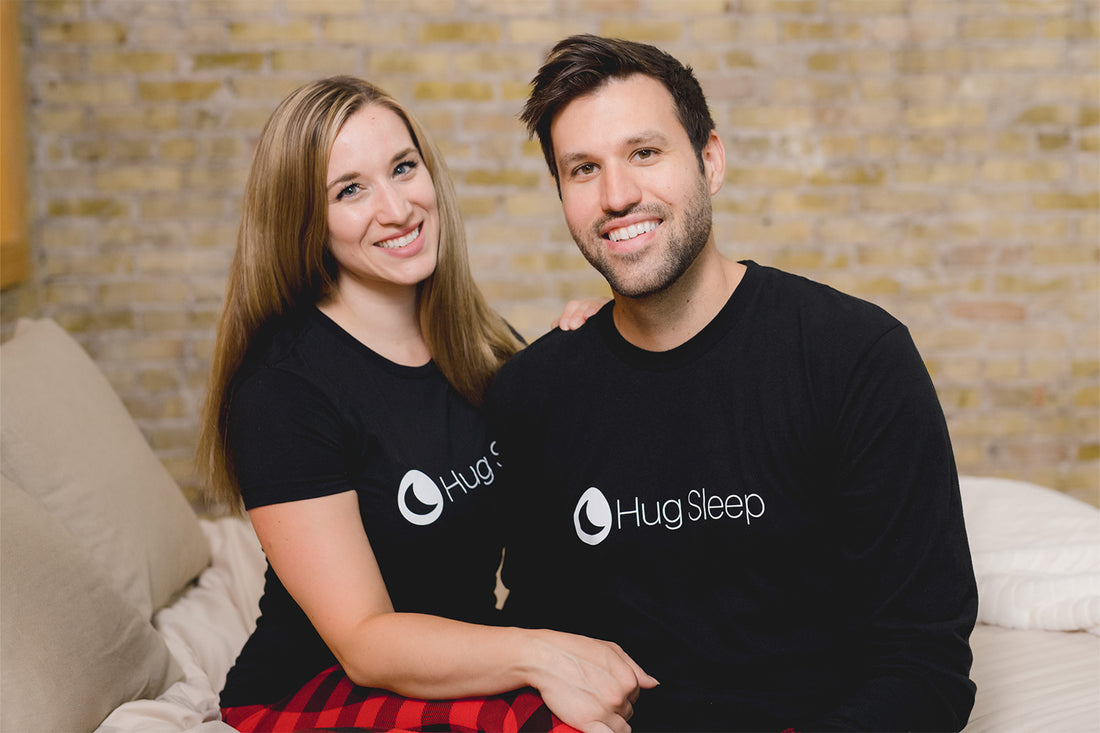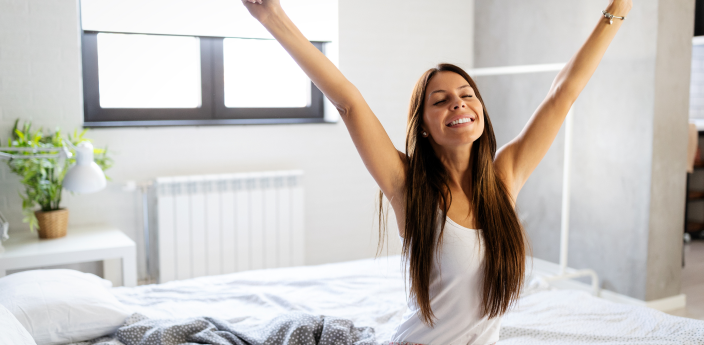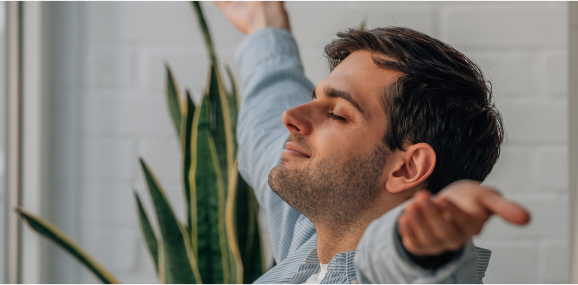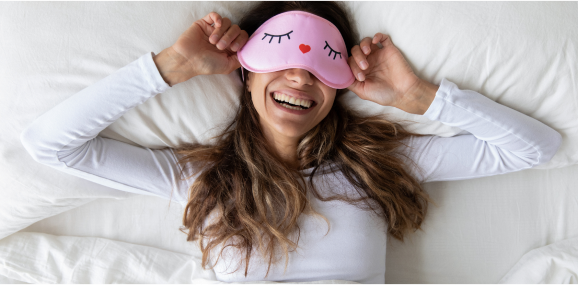One of the most important things we do in life is sleep. It helps us rebuild, rejuvenate, and restore. It can’t be replaced and it can’t be faked. Sleep is essential to our health.
Sleep is simply a matter of routine for many people. They jump in bed, lights go out, and they’re off to dreamland. No worries, no reservations. Sadly, this isn’t true for everyone.
For some people, bedtime is a dreaded time. What should be a time of rest and relaxation is instead a time of restlessness and fear. It is the fear of sleeping alone.
The reasons for this fear can be numerous. For some, the fear of sleeping alone is a result of grief over the loss of a loved one. For others, they simply feel unsafe shutting their eyes dropping their guard.
Thankfully, there is hope for those looking to overcome their fear of sleeping alone. Here, we share some great tips to help you conquer it.
The Fear of Sleeping Alone and Its Causes
According to sleep experts, healthy adults should be getting in between seven to nine hours of sleep per night. Unfortunately, those numbers simply aren’t attainable for some. In fact, sleep statistics tell us that over 35% of adults in the United States sleep less than the recommended seven hours every night.
The reasons for insufficient sleep vary.
One of the major reasons for poor sleep is a collection of feeling stress, anxiety, and fear. Stress and anxiety can keep you tossing and turning at night, making sleep elusive. Not only that, but it creates a perpetual cycle. Stress feeds sleep deprivation, which feeds more stress.
Stress is also responsible for the release of cortisol, a stress hormone. When cortisol levels remain elevated, feelings of anxiety remain high, making sleep difficult. In fact, cortisol is usually released to help you wake up in the morning, so you can imagine that having it released at night instead can be a big barrier to bedtime.
A quick look at fear
Fear has a similar effect to cortisol as it is closely tied to the body’s stress response. Fear is considered a universal emotion, being experienced by everyone at some point in their lives.
Fear arises with some perceived threat, whether physical, emotional, or psychological in nature. It can be real or imagined, rational or irrational. Regardless of how fear manifests, the struggle to cope with it is a real one.
The fear of sleeping alone is one example. It breeds feelings of worry and anxiety at bedtime, which can make sleep feel impossible.
Let’s take a look at some of the potential causes for the fear of sleeping alone.
Fear of Going to Sleep
One of the most common causes for the fear of sleeping is the fear of falling asleep. Clinically, this is known as somniphobia, and is classified as a sleep disorder. It is also commonly known as sleep anxiety.
Sleep anxiety is described as the general fear or worry about falling asleep. For many, it breeds an apprehension come bedtime. Sleep anxiety is also associated with the fear or discomfort of sleeping alone.
Here are some of the psychological symptoms associated with somniphobia:
- Fear, worry, dread, and anxiety at bedtime
- An overwhelming fear of being alone at bedtime
- Feeling more stressed as bedtime approaches
- Sleep procrastination, staying up late to avoid sleep
- Racing and uncontrollable thoughts, unable to get settled
Physical symptoms could include:
- Sweating
- Rapid heart rate
- Nausea
- Shortness of breath
- Sleep deprivation, fatigue, lack of energy
Although the exact reasons can vary, somniphobia and sleep anxiety are typically associated with negative sleep experiences in the person’s past. This includes things like frequent nightmares or night terrors, sleep paralysis, and more.
It can also be associated with anxiety disorders or the fall out from a traumatic event; i.e. post-traumatic stress disorder (PTSD).
The sleep anxiety that comes from the fear of sleeping alone can have a drastic impact on your sleep health if it causes sleep deficiency. Sleep deficiency has been linked to the development of numerous chronic health issues.
Grief and Loss
Grief impacts sleep and is another significant factor when it comes to the fear of sleeping alone. The sudden loss of someone you love, like a spouse, can have a powerful impact on your sleep.
Lying alone in your bed next to an empty spot where your loved one used to be can be extremely difficult to cope with. Many simply don’t understand how strong the connection is between grief and fear.
Feelings of sadness that come from a loss can turn into fear for those that are left alone. Sadly, this fear is felt most palpably at the end of the day when we lie in bed, as the weight of the world and our emotions rest upon us.
Unfortunately, grief has no timeline. It comes and goes. Some days and nights are better than others.
Experiencing other losses
The feelings of loss or grief are not limited to the death of a loved one. In fact, grief is a natural response when we lose things close to us. It could be the loss of a job, which means the loss of our livelihood. It could be the loss of a relationship we hold dear.
Regardless of the cause, grief has a huge impact on our mental and emotional health. Complicated grief, which is intense grief that seems to hang around, can lead to issues such as chronic anxiety and stress.
Grief affects everyone differently, but for some, it conjures great fear, especially when it comes to the thoughts of being and sleeping alone.
Other Potential Causes
The fear of sleeping alone can also be fairly subjective. Some people can’t explain where their fear of sleeping alone stems from while others can pinpoint it right away.
For example, the fear of sleeping alone for some comes from the loss of a habit. Maybe a spouse started traveling for a new job and is gone on some nights, leaving the other alone at bedtime — and fearful.
Other people experience fear of sleeping alone because they feel unsafe. Being alone in a bed, in the dark, can breed some fearful thoughts. Typically, these sorts of fears are associated with sleep anxiety.
Tips To Help Conquer Your Bedtime Fears
There may be other reasons why you feel fearful when sleeping alone. Thankfully, we have some tips that could help ease your worry at bedtime.
1. Don’t Be Afraid To Reach Out
For many, the fear of sleeping alone is caused by some underlying form of anxiety or stressor. People simply learn to live with it and cope as best as they can.
But, it is important to know that you don’t have to struggle alone. The same goes for those who are grieving a loss of a loved one. Grief feels lonely, but it doesn’t have to be.
Reaching out and talking to a close friend, family member, church member, or someone you trust could be the first step to overcoming your fears.
Professional therapy is also an option. For example, cognitive behavior therapists work with individuals to create plans for dealing with their fears and anxiety.
They may be able to help you pinpoint why you are experiencing fear of sleeping alone and be able to offer insights into managing and overcoming it. But you never know until you take the first step. So, don’t be afraid to reach out for help.
2. Swaddle Up With the Sleep Pod
The fear of sleeping alone is often a result of restlessness around bedtime. For those dealing with that nagging stress and feelings of jitteriness, the Sleep Pod was made for you.
Utilizing a therapy technique known as Deep Touch Pressure Stimulation (DTPS), the Sleep Pod helps reduce feelings of anxiety.
The Sleep Pod relies on compression — it’s the blanket that hugs you back. Its cocoon-like shape aids relaxation at bedtime by providing this gentle compression throughout the night.
It’s made from a specialized four-way stretch material, one that’s lightweight and breathable.
If mobility is a concern for you, the Sleep Pod Move has it covered, providing mobility and total feet freedom throughout the night.
So, if the fear of sleeping alone has your restlessness peaked, the Sleep Pod could provide the help you’re looking for.
3. Invite Your Pet to the Bedroom
There is a reason we call them furry friends. Pets have the ability to cheer us up when we’re feeling blue.
If you’re experiencing the fear of sleeping alone then it may be time to invite your pet into the bedroom. Most dogs are more than happy to jump in bed for a nighttime cuddle — cat personalities vary.
The pet doesn’t even have to be right next to you, or even in the bed. Even putting their bed in the space next to yours could help alleviate feelings of loneliness, not to mention increase your sense of security.
4. Break the Routine
Sometimes a change of scenery is all we need. If you deal with serious issues of anxiety and fear when it comes to sleeping alone then it may be of benefit to change things up. That could mean sleeping in another room or on a couch.
This is not meant to be an end-all-and-be-all solution. It is merely a temporary break in the routine. This is especially true if you associate your bedroom with feelings of fear and anxiety. The change of sleep time scenery could help.
5. Avoid Scary Flicks
As an adult, you have the liberty to watch any movie or show you’d like, however, avoiding scary movies or shows might bode well come bedtime.
If the fear of sleeping alone is already an issue for you, then filling your mind and overloading your senses with scary or fearful ideas and images probably isn’t the best idea.
This is especially true right before bed. The fear (and thrills, for some) that you experience while watching the movie has physiological effects (e.g. elevating heart rate and blood pressure), which will also make going to sleep that much more difficult, even if you actually enjoy the occasional slasher flick.
6. Evaluate Your Home Security
For many people, the fear of sleeping alone stems from the feeling of being unsafe in their homes. If this is an issue then it may be useful to evaluate the safety and overall security of your home.
It may mean you need to invest in more security features. This could be a home security system, security cameras, or better locks and security lights. At the end of the day, it is about creating a sense of safety to help ease your fears.
7. Creating a Relaxing Bedtime Routine
Creating a sense of relaxation at bedtime is crucial when it comes to fighting the fears of sleeping alone. That is sometimes easier said than done. But, driving out feelings of stress and anxiety is important when it comes time to settle into the sheets.
The relaxation routine is up to you. Generally, this routine should start about 30 minutes before you decide to hit the hay. For some, that could mean taking a warm bath and enjoying a bit of aromatherapy.
Others might benefit from relaxation exercises, like calming breathing exercises or progressive muscle relaxation. Writing in a journal, reading a good book, or listening to soothing music is another way to wind down.
Don’t neglect the bedroom environment, either.
The bedroom environment is important, too, when it comes to relaxation. The goal is to make the bedroom as optimal for sleep as possible. That means turning off the lights, turning down the temperature, and blocking out the noise.
Artificial lights, especially blue light emitted by electronics, can disrupt the sleep-wake cycle. Keeping the bedroom dark is best. Also, a cool bedroom (around 65 degrees) is thought to be best for sleeping. If distracting noise is an issue, try a fan or a white noise machine.
The Bottom Line
Sleep is one of the most important functions in our lives — it helps us recharge, rebuild, and restore our energy at the end of a long day. But, for many, the thought of sleep conjures feelings of fear.
The fear of sleeping alone is more common than most might think. It is often the result of sleep anxieties, issues surrounding grief and loss, and feelings of insecurity.
Thankfully, fear doesn’t have to have the final say. Freedom from the fear of sleeping alone is possible. It could involve reaching out for help, creating a relaxing routine, or using a blanket that hugs you back.
Find what works for you and kick fear to the curb.
Sources:
Sleep Statistics - Facts and Data About Sleep 2021 | Sleep Foundation
Sleep Anxiety: What is it, Causes, Symptoms & Treatment | Cleveland Clinic
Sleep Deprivation and Deficiency | NHLBI, NIH
How Grief and Complicated Grief Affect Sleep | Sleep Foundation

































500,000+ happy customers